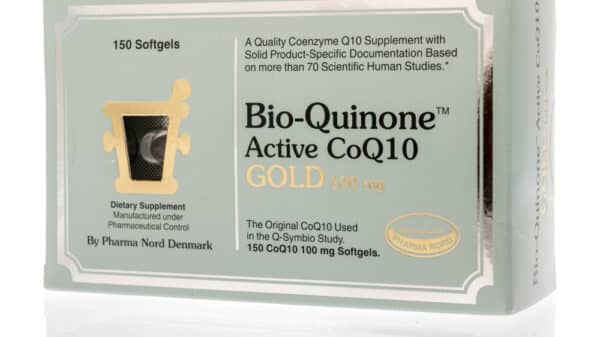Throughout most of my life, I’ve been firmly in the ‘no conversation before coffee’ camp. Can you relate? There’s just something magical about that first sip in the morning—it’s like giving my brain the wake-up call it desperately needs. I’ve always made it a rule to let my coffee do its thing before diving into the day’s work because, honestly, without a solid dose of caffeine coursing through my system, my concentration just isn’t what it could be.
But recently, I stumbled upon a game-changing revelation. While coffee is undeniably a powerhouse for my brain, I’ve been overlooking a fantastic little addition that can enhance its cognitive effects: cinnamon. Yes, that warm spice that makes your morning brew taste like a delightful hug in a mug. Neurologists are touting its benefits, and it turns out that adding cinnamon to your coffee might just be one of the smartest moves you can make for your brain health. Here’s the scoop on why this combo not only energizes our mornings but also supports cognitive function over time.
Before we get into the delicious details of cinnamon’s magic, let’s take a moment to appreciate coffee itself. Dr. Shaheen Lakhan, a board-certified neurologist based in Miami, FL, reveals that coffee offers more than just a pick-me-up. It’s a surprisingly potent ally for our brains, and he confidently explains, “Caffeine—the main active ingredient in coffee—works as a stimulant to increase alertness, boost focus, and enhance short-term memory.”
Furthermore, coffee is packed with antioxidants. These little warriors help protect our brain cells from oxidative stress, potentially lowering the risk of degenerative conditions like Alzheimer’s and Parkinson’s. Dr. Lakhan emphasizes, “Some studies suggest that regular coffee consumption may have neuroprotective effects, and it could even reduce the risk of stroke.” While more research is needed to confirm coffee’s role in keeping Alzheimer’s at bay, Dr. Lakhan recommends moderate consumption as a simple and effective way to support your long-term cognitive wellness.
Now, let’s explore how cinnamon swoops in as the perfect partner for coffee. Dr. Lakhan explains that cinnamon is more than just a flavor enhancer. It contains compounds that help regulate blood sugar levels—critical for keeping our cognitive performance steady throughout the day. Plus, it boasts an impressive amount of antioxidants and anti-inflammatory properties that may contribute to long-term brain health.
A recent review published in *Nutritional Neuroscience* examined 40 studies and found that cinnamon can significantly boost cognitive abilities, particularly learning and memory, while also providing defense against cognitive decline. Going a step further, some intriguing research involving mice indicates that cinnamon might help slow the progression of neurodegenerative diseases like Parkinson’s. However, Dr. Lakhan wisely adds that more studies in humans are necessary before jumping to conclusions. Still, he supports the idea of mixing cinnamon into our coffee routine as a smart, simple strategy to fortify brain resilience. “This isn’t just about enhancing flavor; it’s about giving your neurons that extra layer of protection,” he points out.
If you’re intrigued by the thought of elevating your coffee ritual while focusing on your brain health, integrating cinnamon is an easy first step. But why stop there? There are plenty of other enjoyable ways to amplify coffee’s cognitive-boosting potential, turning your daily cup into a real brain-boosting experience.
One approach is to rethink your sweeteners. As you sprinkle in that delightful cinnamon, consider cutting out artificial sweeteners. Some studies suggest that ingredients like aspartame and sucralose can negatively impact gut microbiota, which has a ripple effect on brain health through the intricate gut-brain connection.
Another good idea? Rethink flavored creamers. Sure, they may sound tempting, but many of these products come loaded with sugars and unhealthy fats, leading to inflammation—a possible risk factor for cognitive decline as we age. Opting for lighter, less processed options can be a game changer for your health.
If you find that cinnamon alone doesn’t quite satisfy your palate, there are healthier alternatives for enhancing your cup. For those who enjoy a creamy coffee, Dr. Lakhan recommends unsweetened plant-based milks or modest amounts of regular milk as better choices instead of heavily sweetened creamers.
And good news—you can wean yourself off added sugars! By gradually reducing your intake or even ditching them altogether, you’ll find that your taste buds adapt more quickly than you think. Research suggests that your body can get used to a lower sugar threshold in just a week, leaving you with a delightful cinnamon-infused coffee experience that’s wholesome and satisfying.
“Keeping it simple is key for your brain,” Dr. Lakhan concludes. “A pure cup of coffee creates a clear channel for your neurons to thrive.” So, as you enjoy your next sip, remember that you’re not only treating your taste buds but also nurturing your brain—one delicious cup at a time.
































